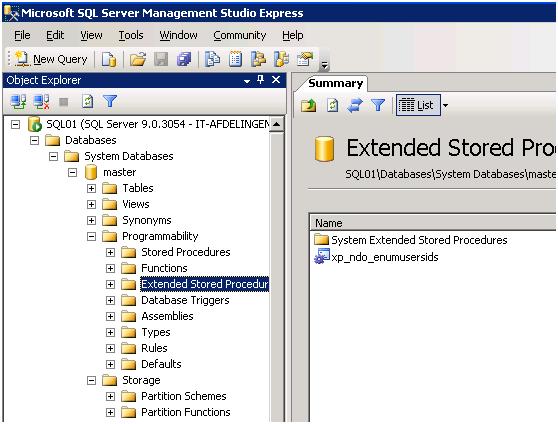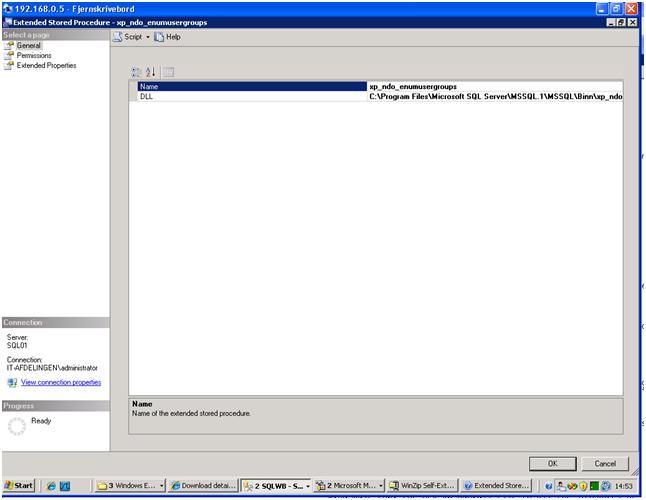Så fik vi købt os en lille gård på landet, ja hvor skulle den ellers ligge :). Huset er velholdt og i rigtig god stand. 1 marts flytter vi, så nåede vi kun at bo 11 måneder i tilst før vi flytter til hammel, men her skulle vi også gerne bor i et stykke tid.
Are your root certificates shipped with a standard windows mobile phone?
Microsoft information on this subject is on this page: Click here
Dieselen til 8.73
Tankede lige diesel til 8.73 i morges, det var en god morgen 🙂
Sure Thiele i Fields
Thiele læser åbenbart med herinde. Blev i hvert fald ringet op af en dame som sagde de havde fået nyt personale derude og at hun syntes jeg skulle slette mit indlæg tilbage fra år 2005.
Men nu ligger sagen sådan at min holdning stadigt er at jeg syntes det var en mærkelig episode, og derfor sletter jeg ikke mit indlæg. Og jeg syntes også det er forkert at slette indlæg.
Indlægget fra dengang kan læses her: http://kennethdalbjerg.dk/2005/10/15/m%C3%A6rkelige-thiele-fields
Jeg tro udmærket at folk kan se at det forgik i 2005 og dermed er det pænt langt tid siden, og der kan nå at ske meget på den tid, og de kan evt. også have fået nyt personale.
Da jeg sagde jeg ikke slettede indlæg blev damen dog sur, og fik fyret en masse vrøvl af, derfor overskriften Sure thiele i Fields. 🙂
Dieselen under 10 kroner i morgen på OK
OK, har netop lige sendt en mail ud til folk der ønsker dette, med prisændringer. Diselen falder til under 10 kroner, 9.92 er liste prisen altså i morgen på OK.
Noget godt kommer derud af finaskrisen 🙂
How to enable out-of-office reply messages to the Internet
By default in Microsoft Exchange Server 2003, the sending of out-of-office reply messages to the Internet is disabled. Many administrators do not allow out-of-office reply messages to be sent outside the Exchange organization to prevent unauthorized people from learning when users are out of the office.
To enable out-of-office reply messages to the Internet, follow these steps:
1. Start Exchange System Manager.
2. Double-click Global Settings, and then click Internet Message Formats.
3. In the details pane, right-click a domain name, and then click Properties. (Note By default, “*” is the SMTP domain.)
4. In the Default Properties dialog box, click Advanced, and then click to select the Allow out of office responses check box.
This allows out-of-office reply messages to be sent under this SMTP policy.
Howto add Extended Stored Procedure xp_ndo.dll (Navision 5)
From your server computer, access the Navision Installation CD-ROM. In the folder $:\SQL_ESP, where the $ is the CD-ROM drive, click the file xp_ndo.exe. When prompted, enter the path to the BINN subfolder of the SQL Server installation folder. (The unzipped xp_ndo.dll file must be in this folder on SQL Server.)
(Standard msSQL 2005 is: C:\Program Files\Microsoft SQL Server\MSSQL.1\MSSQL\Binn)
Open Microsoft SQL Server management Studio Express, connect to you database server.
Navigate to SQLServer -> Databases -> System Databases -> Master -> Programmabilty
Right click on Extended Stored Procesdures, and chose ”New Extended Stored Procedures”
Chose the XP_ndo.dll files.
Ahsay: Howto move user to a new “user home” folder
- Logon to the backup server [Administration Console]
- Under the [Manage System] page, enter another [User Home] (in this case, E:\User) in the [New] textbox provided and press the [Update] button
- Shutdown the backup service from [Control Panel] -> [Administrative Tools] -> [Services] -> [Ahsay Offsite Backup Server]
- Move the user directory to the new user home (e.g. D:\user\xxxx -> E:\User\xxxx)
- Startup the backup service from [Control Panel] -> [Administrative Tools] -> [Services] -> [Ahsay Offsite Backup Server]
[ad]
O3spaces, sharepoint rival
I have install O3spaces, on my servers. I have just installed the free version of the product. And I must say that iam impress about this software. In my work I have use Microsoft Sharepoint, and O3Spaces can satisfy most people. I was looking for a web interface that can control my own documents and in search on Google I found this O3spaces.
Have a look on there own homepage http://www.o3spaces.com
Howto get missing “Show desktop” icon back.
Go to Start/Run and type in “notepad”
[Shell]
Command=2
IconFile=explorer.exe,3
[Taskbar]
Command=ToggleDesktop
Next, save the file with the name “Show Desktop.scf” in the folder:
C:\Documents and Settings\username\Application Data\Microsoft\Internet Explorer\Quick Launch
Replace username with you username.
Then the slow desktop should be back on you Quick Launch bar next to start.

